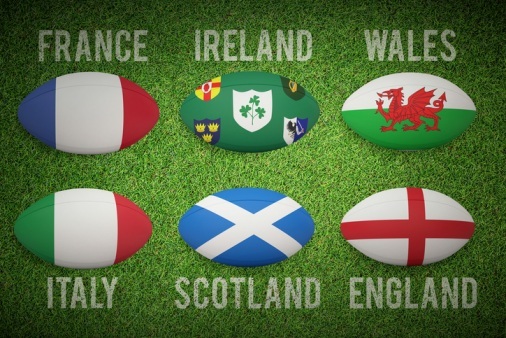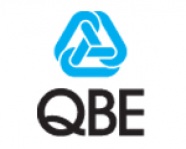QBE Risk & Reward Index pinpoints exact moments when rugby teams win or lose games

QBE Insurance has launched the QBE Risk & Reward Index, a unique and innovative new data tool which shows how rugby teams trade off risk taking and risk mitigation in order to win the Guinness Six Nations tournament.
Developed by QBE and rugby performance analysts, the QBE Risk & Reward Index goes deeper than conventional rugby analysis by considering the role that defensive and attack risk taking has in winning the Six Nations in 2020 through a number of key performance indicators. The Index then correlates the approach of the teams, and some key playmakers, towards managing risk in the way they play and its impact on success on the pitch in winning matches.
For the first time in rugby analysis, the huge bank of available statistics and metrics are incorporated into an easy to understand measure of risk and reward which shows where and how the game has been and will be won or lost.
QBE Ambassador Lawrence Dallaglio said:
“The QBE Risk & Reward Index shows that England won in 2020 through minimising risk by kicking, and playing without the ball, but also by taking the risk of conceding penalties to win the all-important and game changing turnovers. This carefully calculated style of play means they have identified exactly when to deploy risk to generate the greatest reward. How they manage risk is not going to change any time soon so we not only need to understand how it works but also its limitations.”
The QBE Index shows that the reward of winning matches and the tournament comes from managing risk throughout each game by:
- Avoiding risk by kicking the most;
- Playing without the ball;
- Avoiding errors by not playing out wide;
- Taking the risk of conceding penalties to win turnovers;
- Playing in the Red Zone.
The QBE Risk & Reward Index was launched on Thursday 4 February with speakers including QBE Ambassador and former England rugby captain Lawrence Dallaglio and rugby performance analyst Ross Hamilton.
Sam Harrison, Managing Director of Insurance at QBE Europe, said: “As experts in managing risks for businesses, we have applied the same principles of risk management analysis to identify the key moments when risk and reward are calibrated to provide a predictable outcome. The QBE Risk & Reward Index is an innovative new tool, offering a unique insight into the risk and reward of each team’s playing style, helping to identify where the tournament will be won and lost.
“For the first time rugby fans will be able to discover and understand the data behind each team’s approach to the tournament and see how it affects their chances of success. QBE is delighted to be able to introduce these fascinating and hidden aspects of the game to rugby fans across the globe.”
Key findings of the QBE Risk & Reward Index
- Teams that play wider on the pitch take more risk and that risk does not pay off as they are more likely to commit errors and less likely to win - at 33% win rate when playing off the inside centre position compared to 67% when playing off the scrum half position.
- Taking the risk of conceding a penalty during a turnover does pay off as teams are more likely to win games (73%) if they win more turnovers than if they concede more penalties (47%).
- England won the tournament in 2020 by a combination of the highest metrics compared to other teams for kicks in play, kicking metres, turnovers, dominant tackles, lineout steals and total possessions and entries in the Red Zone.
- In 2020, England had the most Red Zone entries which shows that getting into the opposition 22 has a very big impact on tournament success.
- Key playmakers like George Ford, Owen Farrell and Jonny Sexton control the game and manage risk effectively by having very low error rates for kicking and passing which, when combined with the positive outcome from their kicks and passes, leads to a high rate of reward compared to risk profile in the QBE Risk & Reward Index.
- Teams win the most matches (93%) by entering, playing and scoring more in the Red Zone (the opposition 22) and by kicking the most and thus minimising risk by playing for territory and without the ball.
- Teams that avoid errors and complete their possessions with positive outcomes (87%) and the least turnovers (80%) win the most matches.
Authored by QBE
About QBE
QBE European Operations is part of QBE Insurance Group, one of the world’s leading international insurers and reinsurers and Standard & Poor’s A+ rated. Listed on the Australian Securities Exchange, QBE’s gross written premium for the year ended 31 December 2018 was US$13.7 billion.
As a business insurance specialist, QBE European Operations offers a range of insurance products from the standard suite of property, casualty and motor to the specialist financial lines, marine and energy. All are tailored to the individual needs of our small, medium and large client base.
We understand the crucial role that effective risk management plays in all organisations and work hard to understand our clients’ businesses so that we offer insurance solutions that meet their needs – from complex programmes to simpler e-trading solutions – and support them in minimising their risk exposures. Our expert risk management and rehabilitation practitioners focus on helping clients improve their risk management so that they may benefit from a reduction in claims frequency and costs.

